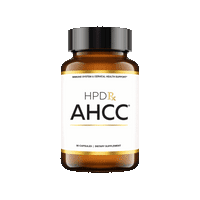Vulvovaginal candidiasis (VVC), also known as a yeast infection, is a common condition that affects the vaginal area that happens as a result of an overgrowth of a fungus called Candida. VVC can be unpleasant and uncomfortable, but the good news is that it’s treatable. Your doctor can prescribe antifungal medications, which are usually in the form of creams, ointments, or pills, to treat VVC.
In a randomized, double-blind, and placebo-controlled trial, it has been found that Lactobacillus rhamnosus GR-1 and Lactobacillus reuteri RC-14, the main ingredients of Pro-Fem vaginal probiotics, can increase the effectiveness of these anti-fungal treatments in curing VVC with no side effects.
Anti-fungal medication plus Lactobacillus rhamnosus GR-1 and Lactobacillus reuteri RC-14 improved the treatment of VVC
A randomized, double-blind, placebo-controlled trial is a type of study that helps determine if a new treatment or drug is effective. Participants are randomly assigned to either receive the treatment being tested or a placebo (a sugar pill), and neither they nor the researchers know which group they are in. This kind of study is known to provide the highest level of evidence and helps to make sure that any improvements seen are actually due to the treatment and not just due to other factors.
Using this kind of study, women who were diagnosed with VVC and who experienced symptoms such as itching, burning, pain during sex or urination, or a discharge that tested positive for Candida were treated with the standard anti-fungal pill every morning for 4 weeks. During this time, half of the women were also given two placebo pills, while the other half were given two probiotic pills containing GR-1 and RC-14 each.
After 4 weeks, the group who took the probiotics along with the anti-fungal medication had significantly fewer symptoms (10.3%) and less yeast (10.3%) compared to the group who only took the anti-fungal medication (34.6% and 38.5%, respectively). These results indicate that taking GR-1 and RC-14 probiotics along with anti-fungal pills can help cure yeast infections more effectively.
Revolutionizing Yeast Infection Treatment with GR-1 and RC-14
The Lactobacillus strains GR-1 and RC-14 are commonly found in the human body. GR-1 was first found in a woman's urinary tract in 1980, while RC-14 was found in a woman's vagina in 1985. These strains were discovered and patented by Chr. Hansen, a highly reputable bioscience company and the co-manufacturer of Pro-Fem, and have been tested for more than 20 years and in over 30 clinical studies. They are the most researched probiotics for women's reproductive health and have been used safely and effectively for a long time.
This discovery about GR-1 and RC-14 is important because it provides a new approach to treating a common and debilitating condition that affects many women. By adding probiotics to the treatment regimen, the cure rate of the infection can be increased, offering a more comprehensive and potentially safer solution for patients. This discovery opens up new possibilities for the treatment of yeast infections and could lead to better outcomes for those affected.
If you are currently diagnosed with VVC, talk to your OB-GYN or primary care physician about how Pro-Fem vaginal probiotics will greatly benefit you.


